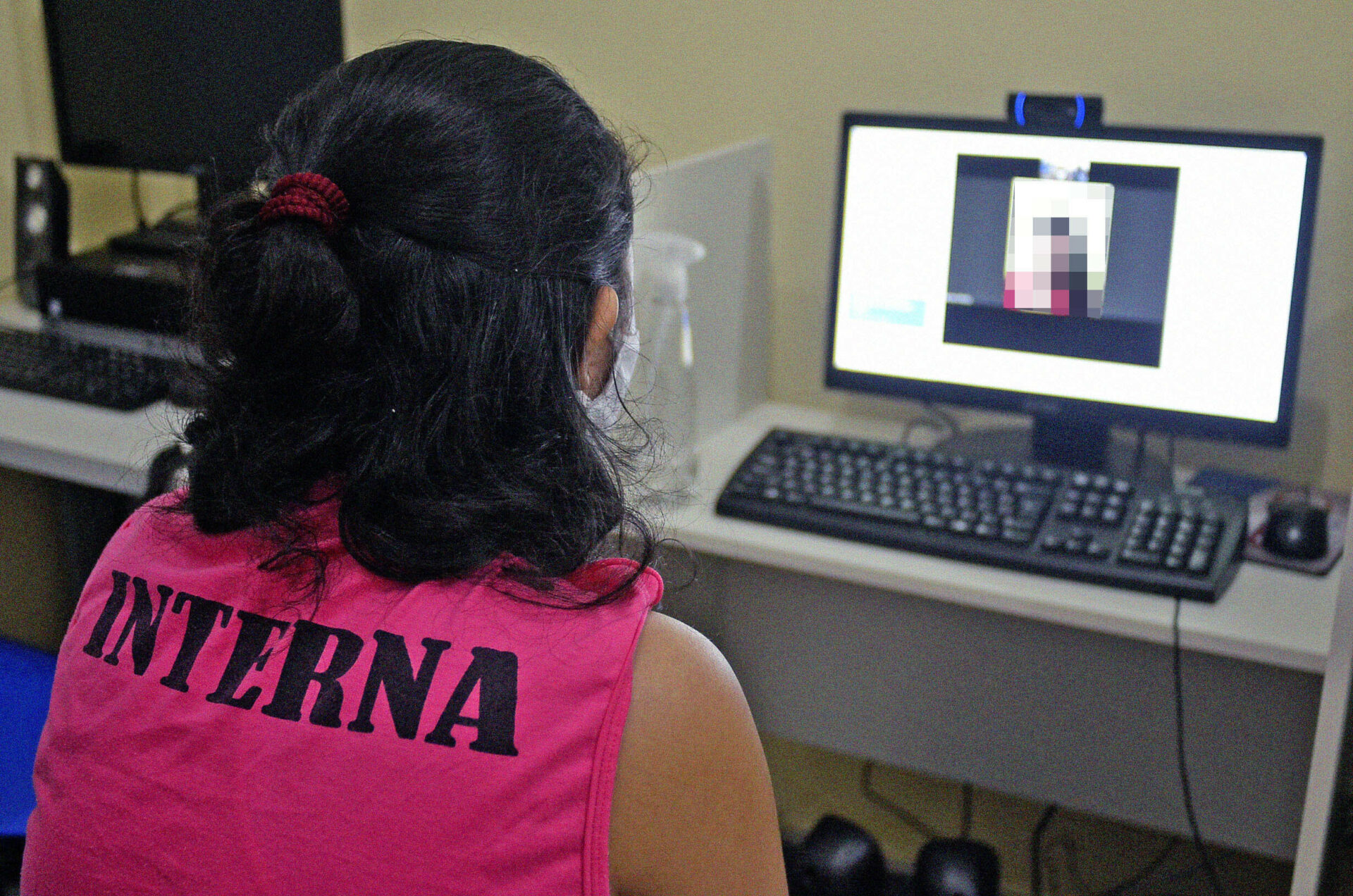In order to soften the impact of the full closure of prisons due to the new coronavirus, which has suspended around 1 million monthly visits registered across the country, the Humanitas360 Institute and the National Justice Council (CNJ) are working together to consolidate virtual social visits. Initially, the institutions are working to expand a project initiated by the Maranhão government, but the idea is to take the initiative to the whole country and make it a public policy beyond the pandemic period. The virtual solution can provide, for example, visits by family members who live far away, reinforcing links towards a return to society after serving time.
As part of the initial project in Maranhão,the Humanitas 360 Institute — backed by technical support from the CNJ — gave away 55 laptops, which were distributed to 39 prison units in the state by the Maranhão Penitentiary Administration Secretariat.
Countries like Canada, the United States and Colombia already made use of virtual social visits, a solution that, due to the pandemic context, has also been adopted in places like Australia and Ireland. The calls are made by video with previously registered visitors and obey the rules pre-established by the prison administration, such as appropriate clothing and limited number of visitors per call. Calls must last 40 minutes for each person in state custody. All donated equipment has terms of use and can only be applied for virtual social visits.
Expansion
So far, about 14 federal units have signaled an interest in participating in the initiative led by the CNJ and the Humanitas Institute360 with the support from the Ministry of Justice’s National Penitentiary Department (DEPEN), an action that could reach more than 70,000 people deprived of their liberty. The Humanitas360 input involves the donation of devices used for video calls, such as tablets and computers. After the pandemic, the devices could be used to ensure virtual social visits to specific groups, such as migrant populations and people serving time in municipalities far from their origins.
According to counselor Mário Guerreiro, the Supervisor of the Department for Monitoring and Inspection of the Prison System and the Execution of Socio-Educational Measures System of the CNJ (DMF/CNJ), the CNJ is working to make this practice systematic and is studying a resolution for the subject..“The ambition of this initiative by CNJ and H360 goes far beyond social visits, and is willing to improve and strengthen legal, health and educational assistance in prisons,” he says.
Judge Luís Geraldo Lanfredi, the coordinator of the Department for Monitoring and Inspection of the Prison System and the Execution of Socio-Educational Measures System (DMF/CNJ), underscores the importance of not suppressing the contact between people deprived of their liberty with the outside world. “The Covid-19 pandemic ended up accelerating a policy that was already seen as necessary, since the convict’s contact with the outside world serves their own social interest so that these people can start a new life after prison. In times of coronavirus, with visits suspended in 100% of the country, virtual contact is even more relevant and urgent,” he says.
For the president of the Humanitas360 Institute, Patrícia Villela Marino, enabling family communication is essential in times of great tension and many uncertainties. “Not only from the humanitarian perspective of the inmates, but also from the very important point of view of the organizational climate within the system in order to protect prison guards, a group of public agents highly deprived of protective and health measures. Philanthropy has to be the financier of strategies and the enabler of tactics that the government alone cannot implement — and the private sector does not believe in it because they cannot foresee gains in the short term. This is the photograph that we need to change.”
Dynamic
One of the main concerns regarding the Virtual Social Visits project is data and communication security between people deprived of liberty and their families, which must be governed by the Data Protection General Law. All conversations will take place in rooms set up for virtual visits, guaranteeing, at the same time, the security of the prison unit and the privacy of users. The suggestion is to have a maximum of 15 visits at a time, lasting 40 minutes each.
The platform and the system for registering visitors and scheduling visits were developed by the Maranhão Penitentiary Administration Secretariat (SEAP-MA) and may be shared with other federal units. Family members or other visitors who do not have a telephone capable of using the platform or who do not have internet access for calls may use the structure of the Social Offices, facilities that provide services for people who left the prison system.
Outras frentes da pandemia
The Humanitas360 Institute has also been working on other fronts to help mitigate the effects of the pandemic on the Maranhão state prisons, where we implemented the Cuxá Cooperative. We donated 2,000 liters of bleach to prison units in Maranhão, as well as material for the production of 88,000 protective masks. We also provided a space for the Cuxá Cooperative to produce these masks. Part of our cooperative members are working on this project. We also arranged a donation of 10,000 meters of fabrics from the Alpargatas group to SEAP-MA — this material will be taken to prisons for inmates to make lab coats and clothing for health professionals.
Iuri Tôrres – Agência CNJ de Notícias
Instituto Humanitas360





